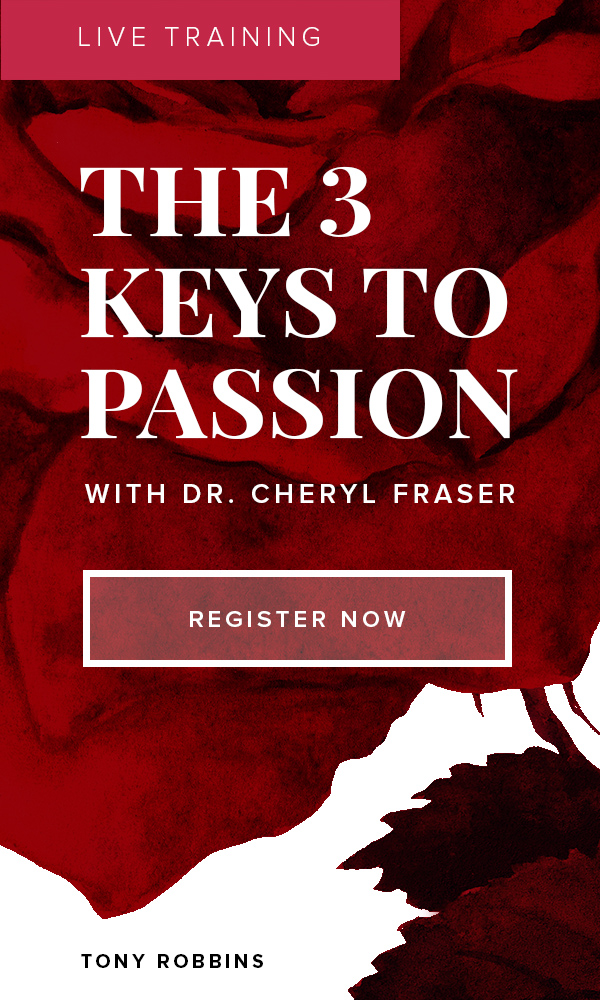Team Tony cultivates, curates and shares Tony Robbins’ stories and core principles, to help others achieve an extraordinary life.
The art of the mindful apology
When conflict arises, there’s a way to give – and receive – an apology
Whoever said “Love means never having to say you’re sorry” must have been married to a stuffed unicorn. Or a plastic potted plant. Because if they were in a relationship with a human, that statement likely turned into “Love means I’m on a dirt road to divorce court because I never say I’m sorry.”
Let’s face it. Even healthy, happy couples argue – and sometimes they fight dirty. Despite the hard work you put into your relationship, despite the hours you spend on personal development and managing your state, and certainly despite your best and most loving intentions, you won’t always handle relationship conflict well. We all mess up sometimes. Some of these mistakes are foolish and unintentional. But sometimes we launch targeted attacks on our mate’s vulnerability. We cause harm to our partner and to the intimacy between us. So, what do you do when you wound others with words?
Apologize. Don’t ignore the mistakes. If you don’t tend to wounds, they can accumulate, and unacknowledged wounds can build walls between you. But our mistakes are also our greatest teachers. Every unskillful act or word gives us the opportunity to begin again. When you fail at loving mindfully, I recommend you take a love mulligan. In golf, some players allow themselves a do-over after a lousy shot, a second chance to make it right. This works great in love, too. When the damage has been done, skillful couples make a repair and start over. When they get stuck in a sand trap, they are determined to dig themselves out, learn something, and do better the next time around.
How to give, and receive, an apology
To give or receive a good apology is an art – and a good apology takes two people. There is the giver and the receiver. The apology must be offered, and it must be accepted. An apology that heals is based in kindness, generosity, and compassion. I’ve hurt you. I realize it. As the offender, I offer you my repair. I apologize with a kind heart, voice, and words. I attempt to renew our intimacy, and bring us into closeness again. But I cannot repair it alone. Even an apology crafted by the Buddha himself is not complete unless the recipient accepts it with grace and offers something in return: forgiveness. When you have hurt me, I see you struggle. And I love you, so I hear your apology with a kind heart, ears, and mind. And then I forgive you. Without my forgiveness, our rift cannot heal.
So, we, the offender and offended bear equal responsibility for bringing together that which was torn apart. We are lovers, together. Our relationship is something we each take full responsibility for. My mindset causes my unhappiness, not you. So even when you’ve said something cruel, I can choose, with my mind, to let it go – to see beyond the temporary clouds of fear, ego, and story to love underneath. So yes, my darling, I forgive you. I forgive you for your humanity, your flaws, your missteps. And I ask you to do the same for me when I fail.
The mindful apology in practice: repair, forgive, begin again
Repair
Here is a repair manual for when something you’ve said has upset your partner. “I’m sorry” is a good start, but for an apology to rebuild intimacy, it should have three qualities. If you have said something unfair, first you need to own the mistake. Second, you need to repair the damage. Third, you need to vow to improve.
So, practice saying, “I’m sorry” in the form Own, Repair, Improve. I did X (own), I’m sorry (repair), and I’m going to do Y (improve). It might sound something like this: “Sweetheart, I want to acknowledge that I said I hate going to see you play baseball and that sports are a waste of time. That was a mean thing to say (own). Sometimes I’m selfish about my time, and that’s not fair to you. I’m sorry I said that (repair). Next time you ask me to come to a game, I’m going to say yes (improve).” You can include some humor for bonus points: “But hey, let’s be real, you married an artist who can’t throw a ball, what do you expect? I love you, babe.”
Forgive
Can you forgive and forget? If you have been hurt, you may never completely forget. But you can always forgive because forgiveness is a choice – a choice you may need to make over and over again. When your troublesome mind seizes on something your partner said or did that hurt you, you’ve forgotten the present moment. You are reliving something that no longer exists. You are creating your own suffering here and now, based on a story. Unless you can choose to forgive your beloved, you cannot dance in the present moment with them. You are tainted by the past.
By choosing to forgive your partner, you are also choosing to forgive yourself, because you make mistakes too. Choose to stop creating pain in this perfect moment. “I forgive you” is a good start to accepting an apology. But if you aspire to be a generous lover, I recommend three steps for the receiver, as well. First, thank your partner for caring so much about you and your relationship. Second, acknowledge that your partner has owned their mistake and is attempting to repair it. Then third, accept the apology.
So practice saying “I forgive you,” in the form Thank, Acknowledge, Accept. Thank you for saying X (thank), I appreciate you owning what you said (acknowledge), and I forgive you for Y (accept). It might sound something like this: “Thanks for saying that (thank). It made me upset when you were rude about my baseball game. I felt like you aren’t interested in the sport I love. It takes guts to admit you were mean (acknowledge). It’s okay. I accept your apology. I’d love it if you would come to the game Wednesday (accept).” You can include humor here too for bonus points: “And hey, maybe we can go for drinks after at the weird art café you like!”
Begin Again
Unfinished business accumulates. Let go of the small slights and the large wounds so they don’t pile up. Practice dual apologies often. Love means saying I’m sorry. I forgive you. And now we begin again, in this very moment, as friends, and as generous lovers. Because you are a lot more fun than a stuffed unicorn.
If you would like to learn more about how to create love and passion that last a lifetime, check out Dr. Cheryl’s FREE Passion Masterclass – where you’ll learn hto reignite great love, romance, and sex so you can fall in love all over again – with the one you are with.
About Dr. Cheryl Fraser
Cheryl Fraser, PhD, is a Buddhist psychologist, sex therapist, author and speaker who has helped thousands of couples jumpstart their love life and create passion that lasts a lifetime. An awarded Fulbright scholar, she has conducted extensive research on sexual behavior and what causes love relationships to to succeed or fail. Her new book, Buddha’s Bedroom, Dr. Fraser presents enlivening mindfulness exercises, techniques from couples and sex therapy, and the wisdom of Buddhist teachings to help couples break free from the monotony of familiar routines, and reignite the passion they once had.




